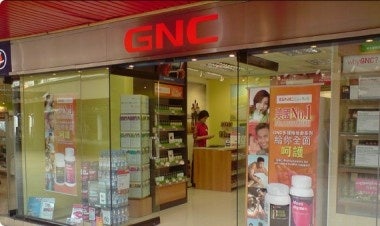China Already No 2 Biggest Consumer Of Nutritional Supplements#

Vitamins aren't usually considered a part of the luxury industry, but in China, where food safety scandals have increased in frequency and severity in recent years, health-conscious middle-class consumers are shelling out for imported nutritional supplements. While imported, "luxury" nuts, bottled water, and organic produce make for great headlines, among the fastest-growing premium segments in the China consumer market are decidedly un-sexy supplements like protein powder, fish oil, and probiotics. With Chinese outbound tourism booming, anyone catching a glimpse of wealthier Chinese tourists in New York is sure to see shopping bags from GNC and the Vitamin Shoppe toted alongside those the likes of Chanel, Barney's and Bergdorf-Goodman.
The premium that Chinese consumers place on their health -- and China's vast population -- means a potential windfall for major supplement producers and retailers in the US and Europe. As China Daily notes this week:
It is estimated that the sales of vitamins and dietary supplements as well as food and drug additives in China will reach 600 billion yuan ($95.2 billion, 73 billion euros) by 2015. According to industry experts in China, additives take up a large portion of sales in the country.
But one of the main reasons why the door is open for international vitamin makers, says Zhang Yongjian, an expert with the China Health Care Association (which is affiliated with the Chinese government) is that most of the vitamins produced in China are shipped overseas and sold under foreign brands.
Zhang says other reasons for increased demand include "growing disposable incomes, an improved health awareness, together with worsening health problems and an aging population".
According to the latest report by the association, average spending by Chinese consumers on healthcare products in 2011 accounted for 0.1 percent of their total expenditures. In developed countries, people spent just 0.03 percent on nutritional supplements.
Despite major market entry obstacles and red tape-plagued approval procedures, the estimated 15-30 percent annual growth rate of health products in China has attracted a growing number of international manufacturers. According to Zhang Yongjian, around 644 types of nutritional supplements have been exported to China over the past 15 years. Interestingly, this has been a boon for American exporters in particular, as some 63 percent of all of these supplements have come from the United States. Of these, the largest players include Amway (which, despite marginalization in its home market, holds 16 percent market share in China), New York-based NBTY, and Pennsylvania-based GNC. Despite a strong presence in the Hong Kong market -- where it has gained popularity among visiting mainland Chinese tourist-shoppers -- GNC is relatively new to mainland China, having only launched in Shanghai, Guangzhou and Shenzhen last August.
Though sales of vitamins and other health products aimed at adults are booming in China, it is in the children's supplements segment that revenue is really mind-boggling. In recent years, Chinese parents have shown a willingness to spend disproportionately high amounts on their children's health compared to family income -- a trend that has become particularly noticeable following the tainted milk powder and baby formula scandals of 2008. Certain brands, such as Guangzhou Biostime Inc, a subsidiary of Britain's Biostime International Holdings Ltd, occupying specific niches in the children's supplement market. As of 2009, Biostime accounted for 85.4 percent market share in retail sales of children's probiotic supplements in China.
However, other segments, like powdered baby formula, have become battlegrounds for producers from New Zealand and Australia, North America and Europe. With domestic Chinese producers still encountering resistance from local consumers in the wake of continued food safety scandals, look for overseas producers to dominate for years to come regardless of high price tags.
